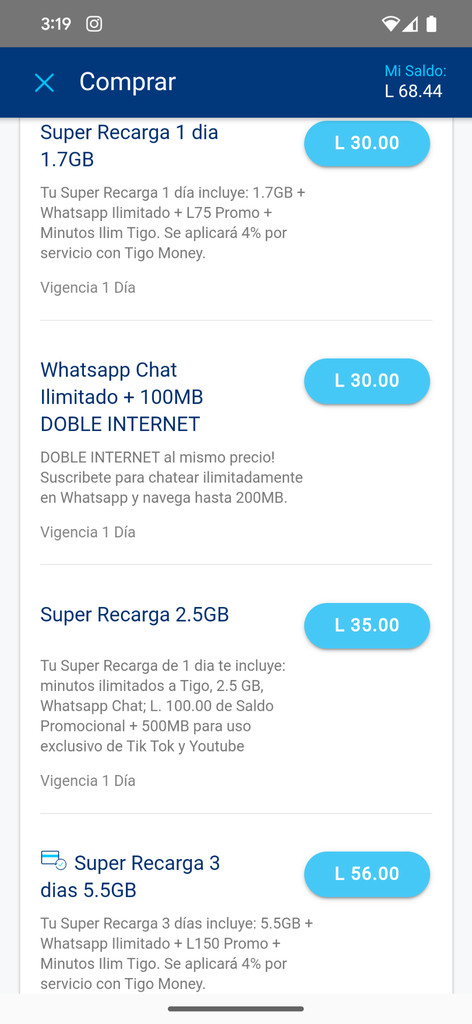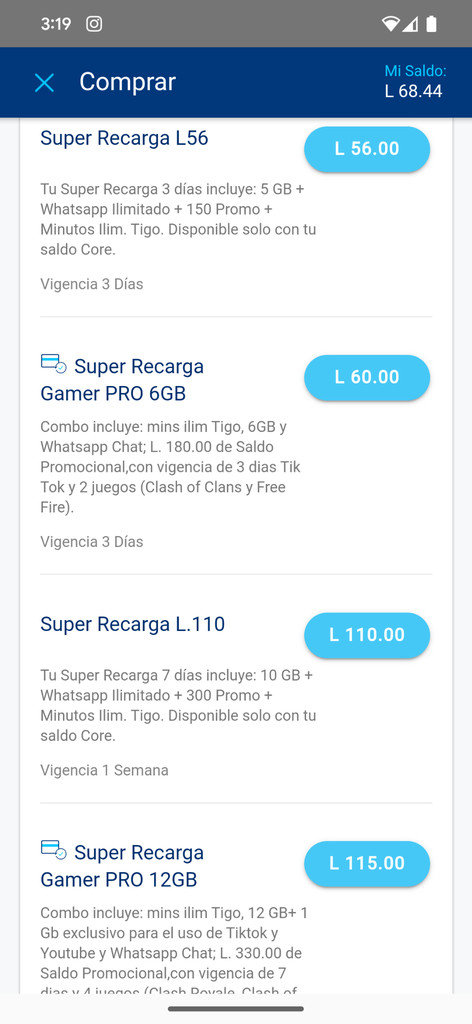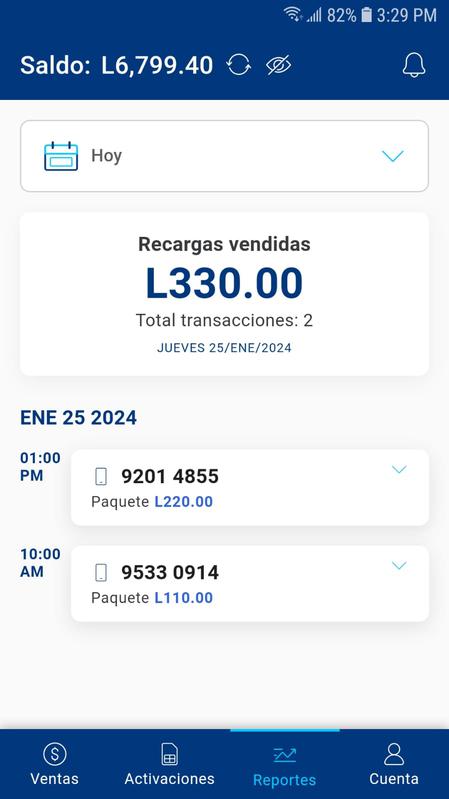Cellphones on Roatan use mainly the Internet
Cell phones TIGO & CLARO
This information is not intended for tourists, although they may find it helpful. Selecting a cell provider used to be quite challenging on the island. If you purchased the wrong type of cell phone or one that didn’t support SIM card exchange, you had to buy both a new phone and a new service. However, this is no longer the case. With the introduction of 4G and LTE communication standards, nearly any phone will function effectively, and I haven’t come across a decent phone in years that doesn’t accept SIM cards. Local SIM cards typically cost between $5 and $10 and are available from multiple sources. In West Bay, Captain Van’s will assist you in setting up your phone if you purchase the SIM card from them.
Roatan offers two cell services:
The choice between the two depends on several factors. Personally, I have always used TIGO and do not plan to switch. However, there are areas on the island where TIGO’s coverage is limited. Let me outline the differences for you to make an informed decision. There are four key factors to consider when selecting a service.
In Honduras WhatsApp is king
Firstly, it’s important to note that traditional text messaging and direct calling are not widely used anymore. The pricing structure in place has led to the prevalent use of WhatsApp and the internet for communication. Additionally, there are a few other applications like Telegram
that gained popularity after Facebook acquired WhatsApp. If you do not use WhatsApp, you may find yourself somewhat disconnected from the communication system in Honduras. Not only can you chat with your bank, pharmacy, local stores, or friends through WhatsApp, but they may also expect you to do so, with no alternative means of contact available.
WhatsApp proves to be a valuable tool for conducting business, as you can send inquiries to companies and banks outside of their regular working hours and often receive responses when their staff members come back online. It is also my preferred method of contact, especially since business accounts allow you to use prewritten messages to assist people trying to reach you.
WhatsApp boasts a user base of over 2 billion people and serves as the sole form of communication in certain countries. During a notable 6-hour outage on October 4th, 2021, it felt as though the world came to a standstill. This outage particularly affected third-world countries, where cell towers and cell phones represent the primary mode of communication, rendering them unable to conduct business or even connect with their families.
Where are you going to be living and working?
Secondly, the physical location of cell towers is a crucial factor to consider. Although coverage is generally consistent across Roatan, there are still some areas that exclusively rely on one network. For instance, the eastern end of the island is exclusively served by CLARO, and if you venture as far as Helene, your TIGO phone essentially becomes unusable. Therefore, it’s essential to determine if the location where you reside has good cell phone coverage for the network you intend to use. Otherwise, you might find yourself in the awkward situation of standing in a specific corner of your house every time you make a call, or even worse, having to trek to the end of a dock while pointing your phone skyward in a futile attempt to obtain a weak internet signal.
Roaming outside of Honduras
Thirdly, it’s important to consider whether you require coverage outside of Honduras. I was pleasantly surprised to discover that during a recent trip to Guatemala, my internet service worked perfectly there. Even more exciting was the realization that they are expanding their internet service to the USA although currently, it appears to be available only on phones with plans exceeding $30 per month, to the best of my knowledge. Additionally, voice and text roaming services are available in multiple countries, with the associated fees varying depending on the specific country. These countries include Canada, the United States, Mexico, Belize, Costa Rica, El Salvador, Guatemala, Nicaragua, Panama, Argentina, Bolivia, Brazil, Chile, Colombia, Ecuador, Paraguay, Peru, and Uruguay.
Get a plan or pay as you go
Fourth, you need to decide how you want to pay for your cell phone service: Prepago (prepaid) or Postpaid/Plans. Prepago, which literally means “prepaid” in Spanish, requires you to pay in advance for your phone usage. You can purchase Paquetes (packets) or Saldo (balance) in advance, often referred to as “recargar” or recharge. Saldo represents your credit for making actual calls and text messages but is rarely used for that purpose. Instead, with the Saldo or money you add, you buy packets that provide you with internet access.
These internet packets have a specific duration and an allocated amount of data that you can use during that time, whichever expires first. For example, I use Prepago and typically purchase weekly increments of 9GB because I’m usually connected to WiFi at home and only use mobile data when I’m away. I rarely use more than 10% of my weekly data allowance before the time runs out, so I purchase it on a week-to-week basis. If you use your phone differently, such as using it as a hotspot because you lack internet access at home, your experience may differ. Consequently, my monthly (28 days) phone bill hardly ever exceeds 408 Lempira, which is approximately $17.
Here’s a sample of the packets you can purchase, but don’t be concerned about their apparent complexity. It’s mostly marketing, and if you choose not to opt for a plan, you can simply buy packets for a week or two at a time.
Screenshots of different packages you can buy



The various packets available can indeed be quite confusing, and in my opinion, they are deliberately designed that way to make it challenging to compare the networks. However, the truth is that it’s a straightforward process, and you don’t need to overcomplicate it. The ideal approach is to purchase approximately one week’s worth of internet. You can calculate it based on your usage, but essentially, you can line up packets in such a way that as soon as one expires, the next one starts automatically, and you’ll receive a notification when that happens. Personally, I often keep a few packets lined up just in case I suddenly have an uncontrollable urge to watch Frozen in 4K on my phone, which could quickly deplete my data allowance.
In reality, having multiple packets helps you keep track of your data usage, especially when using your phone as a hotspot. You will eventually determine your ideal balance between time and data, and for me, it’s roughly a one-week time period.
Phone applications for the services
One aspect where TIGO outperforms CLARO is in the availability of applications you can download on your phone. These apps allow you to easily track your data usage, check your remaining Saldo, and even purchase data packets using your credit card. Once you have your TIGO SIM card installed, you won’t need to search for a TIGO store again; you can conveniently manage your account and data usage right from your phone.
The East End of the island
CLARO may not offer all the same options as TIGO in terms of account management and app availability, but it does excel in coverage and, in some areas, speed. I have friends who reside on the east end, with a boat in Calabash Bight, where TIGO reception is virtually non-existent. In such locations, no matter how attractive TIGO’s interface may be, CLARO becomes the necessity.
Additionally, certain areas like Camp Bay experience very spotty coverage from both providers. If you’re planning to live in a specific area, I highly recommend asking around to determine which network offers better reception in that particular location. Even in my own residence in West Bay, there are certain TIGO dead spots. However, this hasn’t been sufficient to convince me to switch to CLARO. You might wonder why. Well, the reason is simple: I’ve had the same phone number for 17 years, and I’m not inclined to change it.
Keeping your number in your name even if your SIM is stolen
When you purchase a SIM card, it’s important to register it with the respective cell service provider. I’m not referring to setting it up; rather, this involves providing your identification information to the cell service provider and linking your phone number to your name. In the past, this process typically required visiting a local TIGO or CLARO store, presenting your ID, and registering the number under your name.
Registering your SIM card is crucial because, in the unfortunate event of a lost or stolen phone, you can quickly recover your number. If you find yourself in such a situation with a TIGO SIM, you can contact their helpline by dialing *811. If you prefer to communicate in English, you can say, “No hablo español, ¿En inglés por favor?” and often, you’ll be connected with a representative who speaks English well enough to assist you in resolving your issue.
Postpaid vs Prepago
So, what are the advantages of a Postpaid plan versus a Prepago plan, and why have I never switched to a postpaid plan, for instance? There are several considerations to keep in mind.
- Expense Tracking: Postpaid plans are often preferred by companies because they can purchase cell service in bulk, making it easier to track expenses. This approach is especially useful for businesses with multiple employees who require cell service.
- Phone Bundling: Postpaid plans can also include the cost of the latest smartphones, spreading the phone’s expense over time. This is a significant attraction for many people who prefer not to pay the full price upfront. For example, with CLARO, you can acquire an iPhone 12 for an upfront cost of approximately $160 and then commit to an 18-month contract with a $50 monthly payment. This structure allows you to get a high-end phone without a substantial upfront payment.
- Fixed Data Allocation: With a postpaid plan, you typically receive a fixed amount of data each month. Once you use up your allocated data, the cost of additional data usage can be much higher. This means you can’t simply buy additional data packets for special occasions, such as streaming a movie like Frozen II. Instead, you end up paying more for exceeding your data limit. In contrast, with Prepago, you have better control over your spending, knowing exactly how much you’re using and what’s available.
- Inflexibility: If you transfer your number from the Prepago system to a Postpaid plan, you cannot switch back to Prepago while retaining the same number. If you are attached to your current number, this can be a significant factor in your decision.
- International Roaming: Some Postpaid plans, like TIGO’s Nación Tigo service, offer the advantage of using your internet packets in multiple countries, including Canada, the USA, Mexico, Guatemala, El Salvador, Nicaragua, Costa Rica, Panama, Puerto Rico, Colombia, Bolivia, and Paraguay. This is a convenient feature for travelers or those with international connections. However, you may not be able to make traditional phone calls in these countries, so alternatives like internet phone lines or WhatsApp become important.
Using a foreign cell phone in Honduras.
Warning! If you’re uncertain about your phone’s international roaming and data plans, it’s advisable to either keep your iPhone in airplane mode or disable cellular data entirely. This ensures that all cellular data is restricted to Wi-Fi connections only, preventing unintentional data usage for activities like emails, app browsing, and app notifications. While in airplane mode, you can still receive text messages and phone calls. If your plan charges for these services, it may be more cost-effective to simply switch your phone to Airplane Mode.
Different phone systems have the capability to access the internet in various countries, but the crucial factor to consider is the cost. You might be fortunate enough to have a business contract that includes free international roaming, which would eliminate any concerns. However, it’s crucial to verify with your provider before attempting to use the internet in a foreign country. There are numerous horror stories of individuals who either intentionally or accidentally used data without setting up international roaming and ended up with exorbitant bills. I’ve heard of cases where people incurred bills exceeding $800 for just two weeks of vacation.
Moreover, when using your home network’s SIM card with a local cell service, you may not experience the full speed of the local network. Providers often limit the speed for such users, likely as a cost containment measure.
Many providers typically charge a daily fee, often around $10, for using the internet while abroad. Whether there’s a data cap associated with this fee or not can vary, so it’s essential to communicate with your provider to understand the specifics.
I’m aware that certain networks like T-Mobile, AT&T, Verizon, Google Fi, and Telus offer international roaming options. However, these methods tend to be expensive unless cost is not a concern or if maintaining your home phone line is an absolute necessity. In contrast, acquiring a local SIM card for around $5 and paying approximately $8 for a week of reliable internet can be a more economical choice. Additionally, Wi-Fi is widely available in most places, making it easier to stay connected. If you have a second smartphone that supports dual SIM cards or can swap SIM cards for a week, it can be a practical solution for international travel.
Some extra thoughts on long-term usage of CLARO and TIGO
Maintaining your Honduran phone number’s activation is crucial if you’re using a Prepago (prepaid) account. With a Postpaid account, this isn’t a concern. However, with Prepago, your Saldo (balance) will expire after a set period. In the case of CLARO, this expiration typically occurs after about 3-4 weeks, while with Tigo, it might take a couple of months. If you don’t add more Saldo or purchase an internet packet within 2-3 months, your SIM card will be canceled, and you’ll lose your phone number.
So, if you plan to leave Honduras for an extended period exceeding this timeframe, consider asking a friend to send you a small amount, such as 10 lempira of Saldo, every month or two. This practice will help keep your SIM card and phone number active. Alternatively, you can perform this action yourself using the Tigo App when connected to Wi-Fi in another country. Maintaining the same phone number can be convenient, unless, of course, you enjoy changing your friends’ contact information with each visit.
The curse of Double Authentication for banks etc outside Honduras
Living in Honduras long-term while still maintaining credit cards and bank accounts in other countries can pose challenges related to not having a local phone number. For instance, if your US bank, like Wells Fargo, detects unusual activity on your account and decides to freeze it, they may attempt to verify your identity by sending a code to your US phone number. This can be problematic if you no longer have a local number from your home country.
To address this issue, some individuals keep a US or Canada phone line open for such situations or when they return to their home country. However, maintaining an additional phone line for this purpose can be expensive.
An alternative is to use internet-based services like 2ndLine, which provides you with an international number that routes calls via the internet, making it ring like a regular number. However, it’s important to note that some banks and institutions have become aware of these services, and you may encounter issues with receiving text messages or codes from certain sources, as they recognize the number as internet-based.
While services like 2ndLine have worked reasonably well for some users, they are not foolproof, and delays in receiving calls can occur.
Google Phone is another option suggested by some, but it faces similar challenges and may not work for many institutions.
TIGO and CLARO offer a range of services beyond mobile phones, such as TV, residential internet, and money transfer services. There may be reasons to bundle these services together, but it can be a complex decision requiring careful analysis.
If you need internet access at home in Honduras, you can find further information in the following section.
